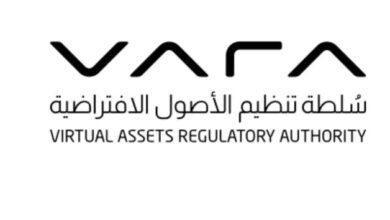Kuwait Central Agency for Information Technology views Blockchain as a trend that is under study

UNLOCK interviewed Mr. Qusai Al Shatti, Deputy Director General for Information technology sector, Central Agency for Information technology Kuwait.
Al Shatti is a strong advocate for digitization of government. Kuwait today is undergoing a digitization strategy as part of its 2035 plan. As Al Shatti explained, “in the next five years we are planning to have an effective digitized government and are reviewing and developing new KPIs to ensure this digital transformation effort is successful.”
Over the next five years the Kuwait government is working on building a connected government as part of its digital transformation effort. As Shatti states, “data and information is a treasure for governments especially when analyzed to create future strategies and action plans. One of our major initiatives is open data platforms.
Kuwait has a strong core infrastructure and is now bridging the gap by creating a strong customer interface and changing the mindset of government employees to become more customer and service driven. As Al Shatti explains, “A lot of governmental entities worked on core services but then later realized that sometimes what they thought were peripheral services actually made bigger impact with citizens. So we want to create services and application that are impactful. For example, we were one of the first countries to legalize electronic signatures and today we have more than 100,000 instances where e-signatures have been used. We are also working on creating digital identity. In addition, many of our services which use to take time to complete such as acquiring approval for building licenses now take three days because we have connected the Kuwait Municipality with other governmental entities in order to quickly provide approvals. The same can be said for the Ministry of Health when it comes to medicines.”
As for the Blockchain, Al Shatti believes that although it has proven most valuable in the financial sector when it comes to peer to peer payments it is still under study. He states, “Blockchain today is a trend and the technology is still evolving. We see that governments can carry out financial activities using Blockchain making procedures more seamless and dynamic. However, we are still in wait and see mode as other trends might come up in the future. We are considering using crypto currency or digital currency instead of cash. This could be something that central banks in the region will look into and study. For example, if Blockchain is adopted there would be no need for checks as we would use smart contracts and electronic wallets. For us all this is under study.”
As for the future Al Shatti believes that all things will become digitized. He says, “today our devices are our gateways to everything our one stop shop even for international services. Challenges for governments in the future will be related to privacy concerns, matters of sovereignty of data and taxation of players such as facebook and others for using their citizens’ data.”





